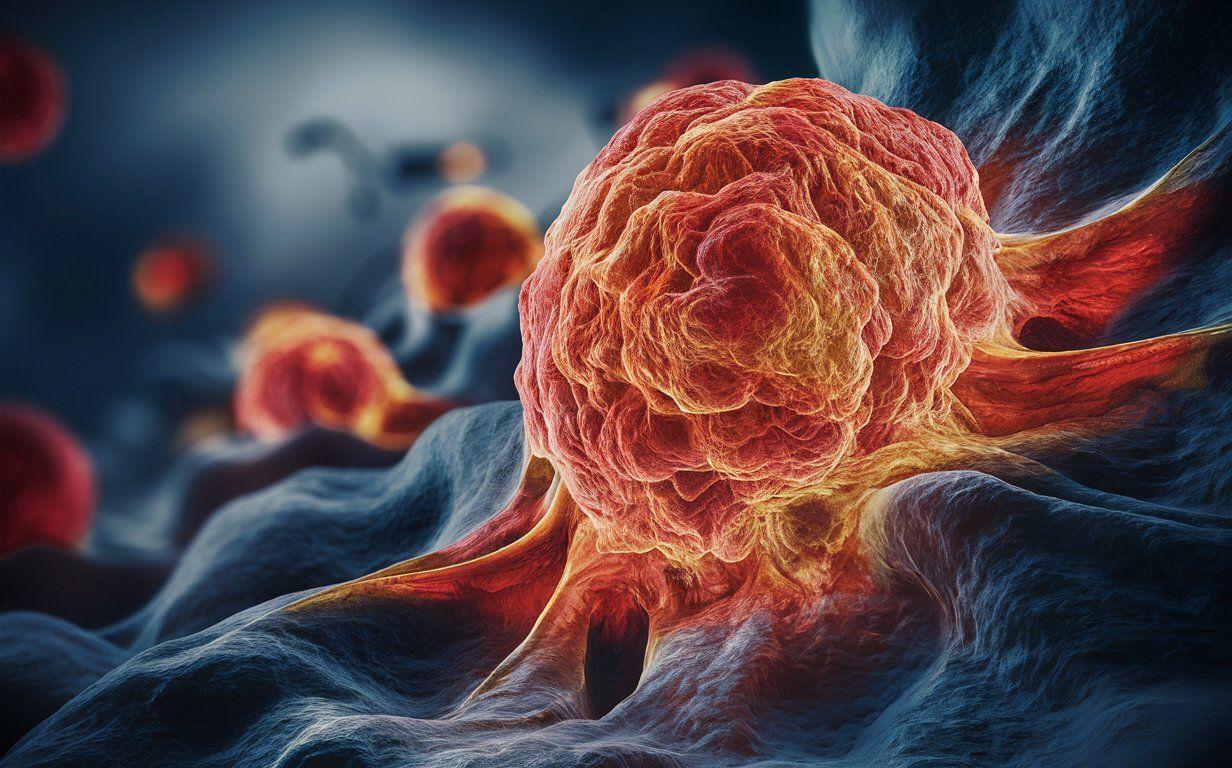Follow us on Google News (click on ☆)
Researchers from the German Cancer Research Center (DKFZ) and the Heidelberg Institute for Stem Cell Technology and Experimental Medicine (HI-STEM) have published surprising findings in Nature. Their work on mouse models demonstrated that pancreatic tumors alter the genetic activity of neurons to support their development.

The study revealed that nerve cells, in addition to directly supporting cancer cells, also influence cancer-associated fibroblasts (CAF). The latter play a crucial role in suppressing the immune response, allowing the tumor to proliferate unchecked.
By interrupting nerve connections, scientists observed a significant reduction in tumor growth. This intervention also made tumors more sensitive to chemotherapy and immunotherapy treatments, opening new therapeutic perspectives.
The team used a combination of nab-paclitaxel, a chemotherapy agent, and neurotoxins to block nerve connections. This approach resulted in a reduction of more than 90% of the tumor mass, demonstrating the importance of nerve interactions in cancer progression.
Researchers are now planning clinical trials to test this strategy in patients with pancreatic cancer. The goal is to reduce tumors to a point where they become resectable, thus offering better chances of survival.
This research highlights the importance of the nervous system in cancer development and opens the way for new therapeutic approaches combining chemotherapy, immunotherapy, and nerve modulation.
How does pancreatic cancer reprogram nerve cells?
Pancreatic cancer alters the genetic activity of surrounding neurons to promote its own growth. This reprogramming involves an increase or decrease in the expression of certain genes, creating a tumor-specific signature.
The modified neurons interact directly with cancer cells and also influence cancer-associated fibroblasts. The latter contribute to the suppression of the immune response, allowing the tumor to grow unchecked.
This interaction between nerve cells and pancreatic tumors opens new perspectives for the development of treatments specifically targeting these mechanisms.
Why is blocking nerve connections effective against cancer?
Interrupting nerve connections to the pancreatic tumor significantly reduces its growth. This is explained by the decrease in the activity of growth-promoting genes in cancer cells and associated fibroblasts.
Moreover, this intervention increases the activity of pro-inflammatory genes in fibroblasts, thus stimulating the immune response against the tumor. This makes tumors more sensitive to immunotherapy treatments.
This combined approach of nerve blockade and immunological treatment opens new avenues for improving the effectiveness of therapies against pancreatic cancer.